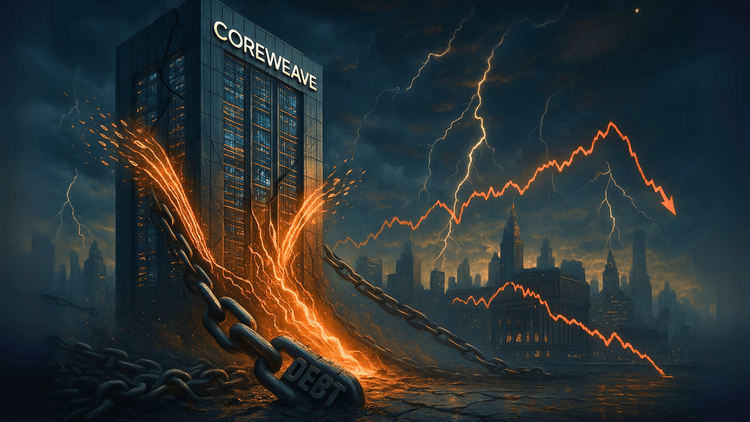Nickel Bull Unleashed: Yildirim Charges Into $2B Battery Metal Blitz
Turkish billionaire Robert Yuksel Yildirim is waging a $2B nickel takeover campaign to outflank China and reshape the critical minerals supply chain for the West.

Robert Yuksel Yildirim isn’t tiptoeing into the nickel business—he’s charging in. The Turkish billionaire and chairman of Yildirim Holding has launched a $2 billion acquisition spree aimed at securing a commanding presence in the global nickel market, directly challenging China’s dominance. Through his newly-formed CoreX Holding, Yildirim is making aggressive moves into undervalued nickel assets around the globe, believing the metal’s current price slump is a short-term anomaly rather than a long-term trend.
While most miners are scaling back, shedding assets, or exiting the space altogether, Yildirim is sprinting in the opposite direction. He’s betting big that the price of nickel will rebound within the next two to three years, driven by Western demand for non-Chinese sources of critical battery metals. “We want to come to the nickel market when people are exiting,” Yildirim said from his Istanbul office. “Eventually it will come up and find an equilibrium.” That’s not just speculation—it’s a geopolitical wager.
Strategic Realignment: From Chrome King to Nickel Visionary
Yildirim made his fortune in chrome and global shipping. His family conglomerate, Yildirim Holding AS, is a Turkish industrial powerhouse. But in 2024, he spun off its chrome, ferroalloy, and nickel businesses into a new venture: CoreX Holding. The rebrand wasn’t just cosmetic. It was a declaration of war against Chinese metal dominance. With CoreX, Yildirim has a singular focus—building a vertically integrated metals empire that starts with nickel and eventually expands into copper, gold, zinc, and other strategic resources.
His timing is no accident. Nickel prices have collapsed under the weight of oversupply from Indonesia, where Chinese-backed projects churn out cheap nickel pig iron. While major Western miners are retreating, Yildirim is scooping up assets at fire-sale prices. He believes his operational expertise—paired with higher-grade production—can turn distressed nickel mines into profitable machines.
CoreX’s first major acquisition was a majority stake in Compagnie Minière Du Bafing SA in Côte d'Ivoire, a move that set the tone for Yildirim’s ambitions. He also inherited ferronickel plants in Kosovo and North Macedonia from the original Yildirim Holding structure. With facilities already humming and $500 million deployed, the playbook is now scaling that footprint globally.
Targeting the Gaps China Can’t Fill
Nickel is the lifeblood of stainless steel and a critical ingredient in EV batteries. But as the world pivots to clean energy, the geopolitical map of battery metals is being redrawn. China, through both direct control and strategic investments, has become the central node in global nickel supply—especially through Indonesia. For the West, that’s a dangerous dependency.
Yildirim sees the opportunity to carve out a Western-aligned alternative. He’s currently negotiating to acquire six additional mines in Colombia, Guatemala, and Africa. While details remain confidential, the goal is clear: build a diversified, globally connected supply chain that flows from mine to port to refinery, serving European and American buyers hungry for non-Chinese supply.
Eventually, the company plans to commission newbuild vessels to control its own logistics—a nod to Yildirim’s background in global shipping. That integration could make CoreX a rare commodity: a fully independent, non-Chinese nickel supplier with both upstream and midstream capabilities.
Why Timing Is Everything
Nickel’s slump has triggered panic among high-cost producers, but Yildirim sees it as a cyclical bottom. The battery metals market, while temporarily oversaturated, is expected to swing back into deficit as EV adoption accelerates. In a few years, today’s skeptics may regret selling. That’s the window Yildirim is targeting, with a keen eye on the long game.
His approach isn’t just to ride the cycle—it’s to reshape the structure. Unlike Chinese producers focused on low-grade nickel pig iron, CoreX is emphasizing higher nickel content and quality. That matters in battery applications, where purity, consistency, and ESG credentials are increasingly non-negotiable for Western automakers and tech companies.
Yildirim also sees his chrome and ferroalloy experience as a natural crossover. Stainless steel will be the beachhead, but the pivot to battery-grade nickel is inevitable. As CoreX grows, expect a shift toward Class 1 nickel and cathode-compatible materials.
The One That Got Away: Anglo American’s Brazilian Asset
No empire builds itself without setbacks. Earlier this year, CoreX made a bold attempt to acquire Anglo American Plc’s nickel business in Brazil. With UBS Group AG on board for financing, Yildirim reportedly offered $900 million—well above the transaction value. But Anglo ultimately sold the unit to China-backed MMG, a move that Yildirim called a “game-changer in nickel history.”
Frustrated and disappointed, he didn’t mince words. “China has grabbed this very important asset from the West to take to China and Anglo is the company letting this happen,” he said. It’s a loss that underscores just how difficult it is for Western-aligned firms to compete with state-backed Chinese giants when it comes to acquiring global resources.
Still, the failed deal hasn’t slowed CoreX’s momentum. If anything, it’s lit a fire under Yildirim’s ambitions.
Financing the Push: Long-Term Capital Meets Urgency
To bankroll his $2 billion spree, Yildirim is courting long-term investors. Sovereign wealth funds, infrastructure groups, private equity, and family offices are all on the radar. He’s not just looking for money—he’s looking for partners who believe in a long-term reshaping of the metals supply chain.
And time matters. “I’m not young, I don’t have too much time to waste,” Yildirim quipped. That urgency is evident in his preference for mid-sized to large projects—no slow-build greenfields, no time for tiny startups. This is a race against both geopolitical clock and generational market shifts.
Europe and the U.S. Need a New Metals Strategy
Yildirim’s strategy doesn’t exist in a vacuum. Western governments—from Washington to Brussels—have begun sounding alarm bells over their dependence on Chinese critical minerals. The U.S. Inflation Reduction Act and Europe’s Critical Raw Materials Act both seek to promote domestic supply chains and friend-shoring of key resources.
But policies alone can’t change the playing field unless companies step up to build the infrastructure. That’s where CoreX fits in. Yildirim is offering what many Western leaders are looking for: a non-Chinese partner with global reach, technical credibility, and geopolitical neutrality.
What Comes Next for CoreX?
While the immediate focus is nickel, CoreX has bigger ambitions. Yildirim has hinted at expansion into copper, gold, and zinc—commodities equally vital for the global energy transition. With assets in Russia, Sweden, and Kazakhstan already in play, he’s positioned to scale quickly if market conditions shift.
The big question now is whether he can close the next round of acquisitions before another Chinese player swoops in. In a world where metals are no longer just commodities—but geopolitical assets—timing, trust, and strategic alignment matter more than ever.
For now, one thing is clear: Yildirim isn’t just building a company. He’s challenging an empire.
Conclusion
Robert Yuksel Yildirim’s nickel offensive is more than just an M&A spree—it’s a strategic masterstroke designed to challenge China’s dominance in one of the world’s most critical metals. At a time when others are pulling back, he’s doubling down. Through CoreX, he’s building not just a supply chain, but a statement: the West still has game, and it’s not folding to Beijing’s monopoly without a fight. Whether or not his $2 billion bet pays off, one thing’s certain—Yildirim has already changed the narrative.






